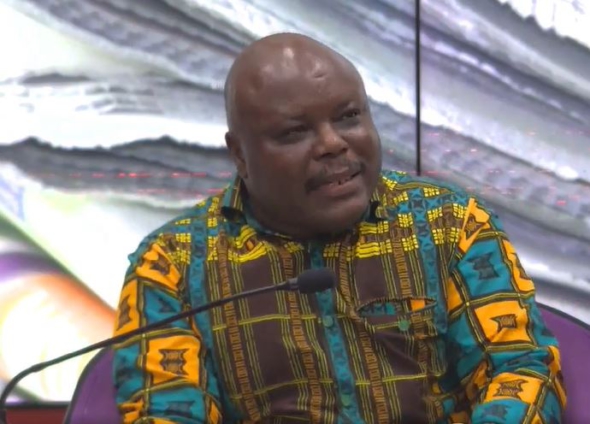Minister for Public Enterprises, Joseph Cudjoe, has clarified why State-Owned Enterprises recorded losses in 2020.
Speaking on Joy FM’s Super Morning Show, on Wednesday, February 2, 2022, he explained that State-Owned Enterprises (SOEs) could not generate enough revenue due to the Covid-19 pandemic but had to pay salaries of their workers.
“What happened is what all of us know. Remember that in 2019 there was no Covid-19. In 2020, however, there was Covid-19. Enterprises perform in an economic environment so if 2019 was not a Covid year and [SOEs were operating normally and paying their staff that cannot be said of 2020 which was a Covid year],” he said.
According to the maiden edition of the State Ownership Report, SOEs and Joint Venture Companies (JVCs) reported net losses of GH¢1,375.33 million and GH¢2,341.37 million respectively in 2019.
However, the SOEs reported a ¢5.3 billion loss in their operations in the 2020 fiscal year, according to the Finance Ministry.
Asked by hosts Kojo Yankson and Winston Amoah why there was such significant increase in the losses within a one year period, the Minister stated that in 2020, when Covid-19 was having a ravaging impact on businesses, private-owned enterprises adopted various mechanisms to cut down cost, but, State-Owned Enterprises could not do same since they operate in the interest of the public.
”There are some companies that halved salaries to survive and some that even laid-off workers. Ghana's government didn’t do all these things. No public sector worker was sacked and public enterprises did not pay half salaries,” he said.
This he said significantly affected revenue generation.
"So they were operating in an environment where they were not having the opportunity to generate revenue as much as they would, but were paying salaries and were incurring all the utility cost. State enterprises didn't take the same actions because the state has a responsibility to ensure the welfare of our own citizenry as per our own constitution.
"The Public sector worker who was being paid, then, for the state to absorb the losses, may have been beneficial to somebody else who may have been sacked from the private sector. So if the state had joined the private sector action of downsizing, sacking, halving salaries, what would have been the conversation? But I'm saying all these things to explain that the jump in the losses reported is just as a result of these actions SOEs couldn't have taken," he said.
Latest Stories
-
NPA proposes tougher punishment to crack down on illegal fuel stations
25 minutes -
Martin Kpebu rallies youth to take over the country
39 minutes -
The 2026 NPP Presidential Primary
47 minutes -
Trump announces air strikes on three nuclear sites in Iran
3 hours -
TESCON SD Dombo University condemns Stephen Amoah’s religious comment
3 hours -
Former SWAG President Ackah passes on
5 hours -
Maison Yusif unveils 2 new fragrances, opens flagship store in Accra
5 hours -
GOC, NSA commemorate International Olympic Day in Accra
5 hours -
Kalsoume Sinare, Namoale, 13 others land ambassadorial roles under Mahama
5 hours -
Photos: President Mahama arrives in Abuja for 67th ECOWAS Heads of State Summit
5 hours -
First batch of pilgrims from Mecca arrives in Tamale
5 hours -
Mahama appoints 15 new Ambassadors and High Commissioners
5 hours -
2 killed, three injured in tipper truck-taxi crash on Ntotroso-Kenyasi road
6 hours -
Heavy rain caused building collapse at Kotokuraba’s London Bridge area – Police
6 hours -
If religion was a factor, I would’ve stepped aside – Dr Bawumia warns against tribal politics in NPP
7 hours

